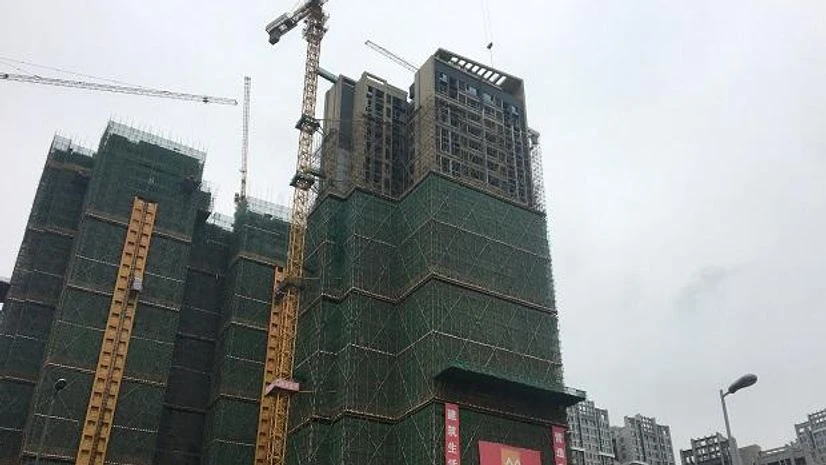Profits at China's industrial firms picked up pace in the first two months of the year from December but still lagged growth for the whole of 2017, backing expectations the world's second-biggest economy is set to cool as Beijing clamps down on debt risks.
Slowing earnings grsowth, following a six-year high last year, could deter investment and put further pressure on China's stock markets which have taken a knock in recent sessions on growing fears of a trade war with the United States.
Weaker earnings could also complicate Beijing's campaign to reduce a mountain of debt amassed by its state-owned giants, which dominate its heavy industries.
Industrial profits rose 16.1 percent year-on-year to 968.9 billion yuan ($154.57 billion) in the first two months of the year, the National Bureau of Statistics (NBS) said on Tuesday.
That compared with a 10.8 percent increase in December, though it lagged the 21.0 percent jump for 2017 as a whole, the fastest pace since 2011, as a construction boom boosted prices of building materials from steel bars to copper pipes and cement.
ANZ Shanghai-based analyst David Qu said the profit growth rate was "still a good number."
More From This Section
"We believe it's highly likely that industrial profits will achieve double-digit growth for the rest of the year despite price slowdown."
Growth picked up speed from December largely due to quickened sales with continued cost-cutting efforts, offsetting weaker prices, He Ping of the statistics bureau said in a statement along with the data.
The government releases combined January and February figures in an effort to smooth out distortions caused by the week-long Lunar New Year, which began in mid-February this year but late January last year.
Strong global demand also benefited China's exporters, though rapidly escalating trade tensions with the United States are clouding the outlook for a repeat performance this year.
Pointing to further profit pressure, Chinese steel futures prices have tumbled to their lowest in eight months on fears of an all-out global trade war and worries about weakening demand at home as the heated property market shows signs of cooling.
The sectoral earnings also highlight the uneven nature of growth. Mining industry profits rose 42.1 percent from a year earlier in January-February, while those for manufacturing were up 12.5 percent.
ANZ's Qu said he expects energy-related industries to fare well this year, despite increased market volatility as investors brace for tighter liquidity conditions and worries about a U.S.-China trade spat.
"I'm concerned that the market may have been too optimistic about China keeping liquidity conditions relatively loose; Globally it's still getting tighter and tighter," he said.
"While overall growth is expected to be strong, whether individual companies have the ability to float above in a more volatile market is a big question."
DEBT BATTLE
China's economy grew at a surprisingly solid pace of 6.9 percent in 2017, thanks in part to the construction boom, but momentum is seen cooling this year as the effects of the regulatory clampdown on debt risks and pollution dent output.
Profits at China's state-owned industrial firms rose 29.6 percent in January-February from the year before, slowing from a 45.1 percent increase in 2017.
Tuesday's data also showed Chinese industrial firms' liabilities increased 6.0 percent year-on-year by the end of February to 59.6 trillion yuan, compared with a 5.7 percent rise for 2017.
The ratio of liabilities to assets at industrial firms rose to 56.3 percent from 55.5 percent at the end of December, highlighting the challenges the government still faces in containing a rapid build-up in corporate debt.
Overall debt of China's centrally-administered state-owned enterprises (SOEs) is under control and is steadily declining, but reducing leverage and curbing risks in the sector remains a priority, the head of the state assets regulator said this month.
State firms will be pushed to improve their asset quality and boost their equity capital, said Xiao Yaqing, chairman of the State Assets Supervision and Administration Commission (SASAC).
Many analysts, however, say the government has been too cautious in reforming lumbering, debt-laden state firms, fearing massive job losses and a blow to economic growth.
Details on highly touted debt-to-equity swaps announced so far have often been murky, and many China watchers suspect that many companies deemed "too big to fail" will be kept on state support.

)
